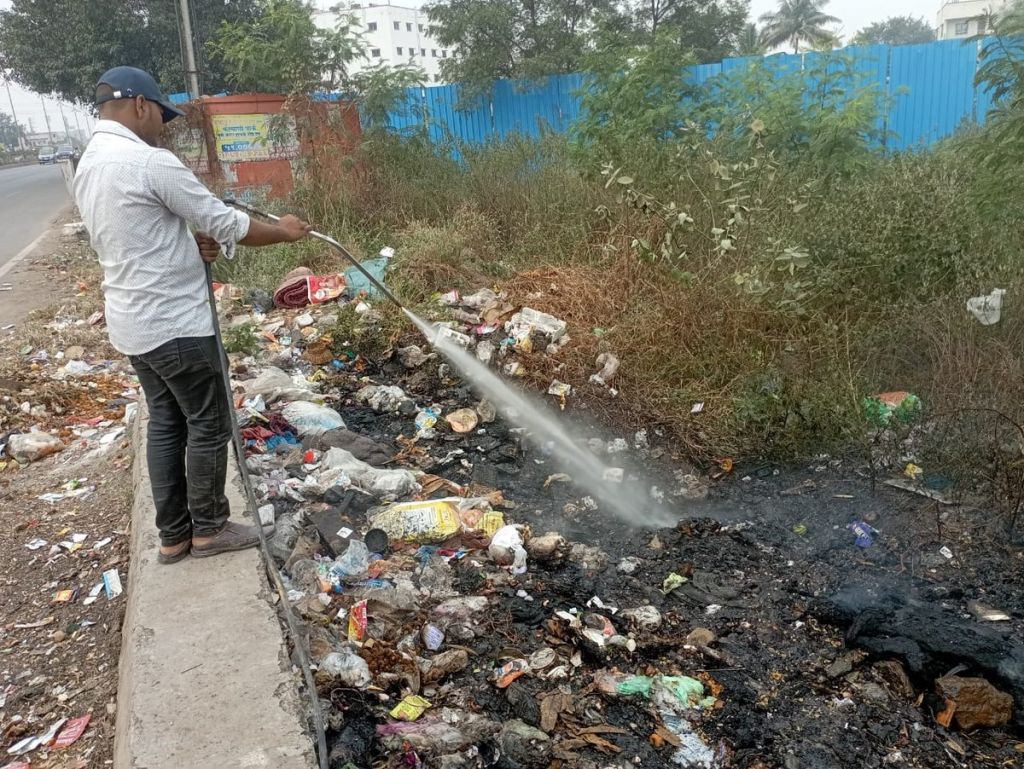
Pune's air quality has deteriorated over the past six days, primarily due to open garbage burning. The heaps of garbage on fire, several spotted by The Free Press Journal on Saturday, are not just polluting the air but also causing health hazards.
An incident of garbage burning was spotted at the Army Sports Institute, Koregaon Park, at around 5:30pm. The cleaning staff were burning garbage on the premises, leading to significant air pollution.




The residents of Kalyani Nagar, on the condition of anonymity, said, "The garbage burning raises concerns about the environment. At a time when air quality is a critical issue, this practice not only violates environmental norms but also undermines efforts to promote sustainability."
"Frequent burning of waste like leaves and twigs has led to thick smoke and toxic fumes. The AQI in our locality has worsened and people are facing breathing difficulties. I already have asthma and the burning of trash in the open worsens my health," said Madhupriya Kulkarni, a resident of Warje.
In another incident, a resident of Wagholi, Rohan Aaron, said, "Rampant garbage burning is happening in our area as well, leading to bad air quality index. When I raised a complaint online and also reached out to the authorities, they sent people with a jetting machine to put out the fire. These people said that they work on a contractual basis. The garbage was accumulated along the Nagar Highway. Instead of picking it up, someone from their team set it ablaze. I was requested to directly inform them instead of raising online grievances as it reflects poorly on their performance."
The health experts highlighted that if the garbage burning continues, it will lead to chronic health hazards.
Dr Rahul Kendre, Lung Transplant Physician and Interventional Pulmonologist, DPU Super Specialty Hospital, Pimpri, Pune, said, "The AQI levels in Pune are alarming and have a profound impact on not just the respiratory system but also the cardiovascular system. With the AQI levels crossing the mark, it is equal to smoking a few cigarettes for a non-smoker. Greater exposure to such polluted air containing pollutants like sulphur dioxide, carbon monoxide, and carbon dioxide impairs lung health by compromising ciliary activity and mucus clearance. This protective mechanism, which usually works to keep the lungs safe, becomes ineffective. Thus, the risk of chronic respiratory conditions such as chronic bronchitis and COPD rises. People with asthma are most vulnerable, suffering from recurrent and severe attacks notwithstanding medication."
"Low AQI also compromises immunity through its impaired ability to clear mucus, thus increasing the susceptibility of people to viral infections and pneumonia, especially during the cold season when attacks are most prevalent. Healthy people without existing medical conditions are also placed at significant risk of recurring respiratory infections due to prolonged exposure," Kendre added.